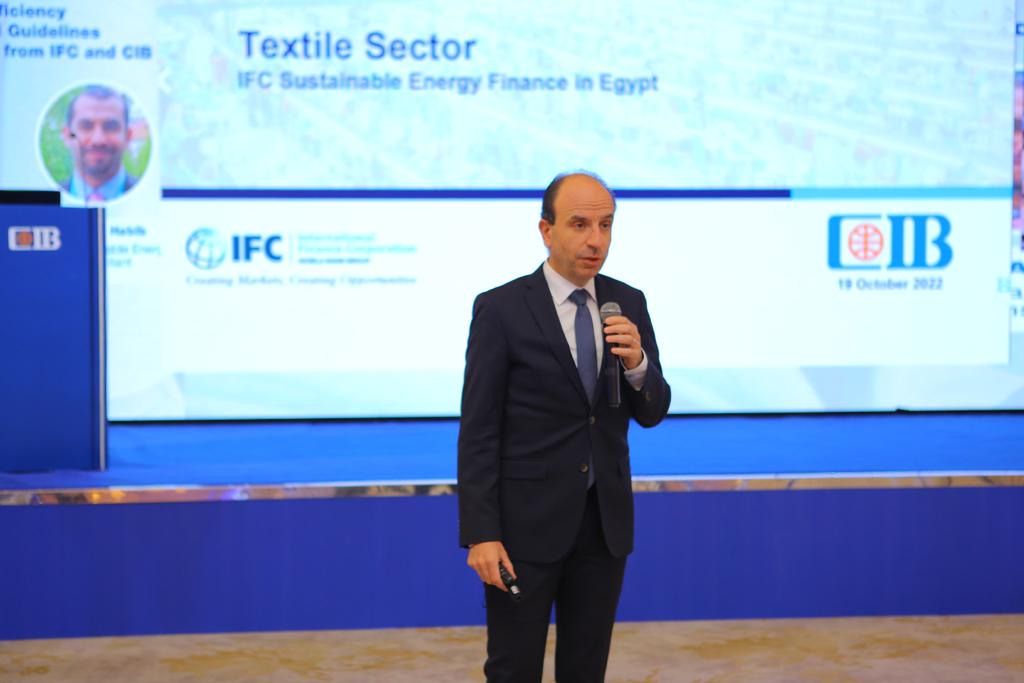
C3S: July 22 hottest day in recent history
July 22 was the hottest day on earth in recent history, according to the Copernicus ...

Fares Kikano, the International Finance Corporation (IFC)’s Sustainable Energy Finance (SEF) Adviser, said innovation and technological breakthrough are vital for realizing energy efficiency in the textile sector.
He made the remarks during the Third CIB‘s Sustaining Sectors Workshop for Egypt’s Textile Leaders.
Energy efficiency for industrial facilities and processes consists of implementing certain measures; namely reducing energy cost and increasing production with less energy, while maintaining product quality, he expounded.
He further said that energy efficiency leads to achieving some savings, but not at the price of the product quality. “This is achievable through a set of measures that are applicable to all industrial and commercial sectors, particularly for the textiles sector.”
“Achieving energy efficiency requires looking at the process energy demand, thermal energy and energy conversion system,” he highlighted.
“Most industrial facilities and textiles in particular can achieve energy and resources optimization and saving by looking at the process as it is today so you have certain equipment, the factory is operating in a certain way, certain utility system, process machinery; it is a fact that there is something that is operational and you have to look at how to optimize and reduce the energy within the current operation,” he said.
He highlighted the importance of reaching the minimum energy required to transform a raw material into a finished product, noting that “technological breakthrough, innovations and new machinery and equipment that are specific for factories can help you reduce energy even further to get as closely as possible the minimum energy required to going from raw material to finished product.”
Machine replacement is also one of the measures that contribute to energy efficiency, he added.
He also touched on means of reducing water consumption in the textile industry, highlighting that the financing mean is also substantial.
He highlighted that energy efficiency in the bottom line would help in competitiveness in exportation to the international market, noting that the textiles sector is one of the biggest non-oil industrial sector.
July 22 was the hottest day on earth in recent history, according to the Copernicus ...
Google has engaged in partnership with DHL to utilize the DHL Express GoGreen Plus service ...
Mars has announced registering a record 8% greenhouse gas (GHG) emissions reduction against its 2015 ...


اترك تعليقا